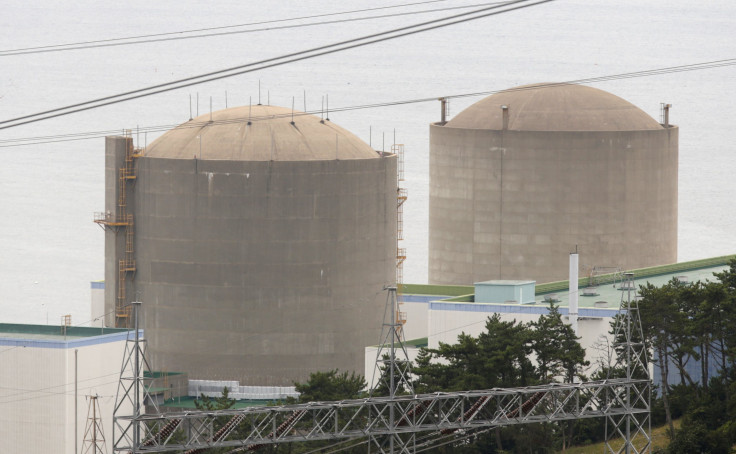South Korea Expected To Shut Down Oldest Nuclear Reactor Amid Safety Concerns

South Korea’s oldest nuclear reactor is expected to permanently shut down in 2017 amid growing concerns about the safety of the aging facility. A government energy committee on Friday called on the state-backed Korea Hydro and Nuclear Power Co. (KHNP) to close the Kori Reactor No. 1.
"The energy committee concluded today that the permanent closure of Kori No.1 is desirable for the mid- and long-term development of our nuclear power industry," Yoon Sang-jick, the committee head and minister of trade, industry and energy, said, according to Reuters.
The shutdown would be the first closure of a nuclear plant since the South began its nuclear program in 1978. The plant's initial life cycle ended in 2007, but it was renewed in 2008 and given an operating life until 2017.
KHNP is a part of state-run utility Korea Electric Power Corp (Kepco), which must apply for an extension to Kori No. 1 before June 18.
"Nothing has been decided until our executive meeting is held some time next week," a spokesman for the energy ministry told Reuters.
The 587-Megawatt (MW) Kori No.1 supplies around 0.5 percent of South Korea’s total power generating capacity. In 2013, nuclear power contributed 139 terawatt-hours (TWh), or 26 percent of the country’s total energy production. The country imports about 97 percent of its fuel by ship, spending about $170 billion on imported energy in 2011, according to Kepco.
South Korean environmental groups have long called for the closure of Kori No.1. The Korean Federation of Environmental Movement, a coalition of environmental groups, warned that 3.4 million people were living within 19 miles of the reactor and said its closure would guarantee their safety, Agence France-Presse reported.
Public trust in nuclear energy has been weakened in the world’s fifth largest user of nuclear power after a 2012 scandal over fake security certificates for reactor supplies, and a December incident where a series of cyberattacks hit South Korean nuclear reactors. The 2011 Fukushima disaster in Japan has also raised concerns over the safety of nuclear energy. Despite this, the South Korean government is planning to significantly expand its nuclear power capacity from its current 23 reactors to 36 reactors by 2029.
© Copyright IBTimes 2024. All rights reserved.





















